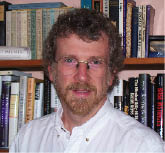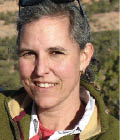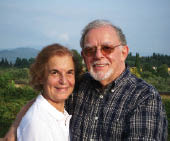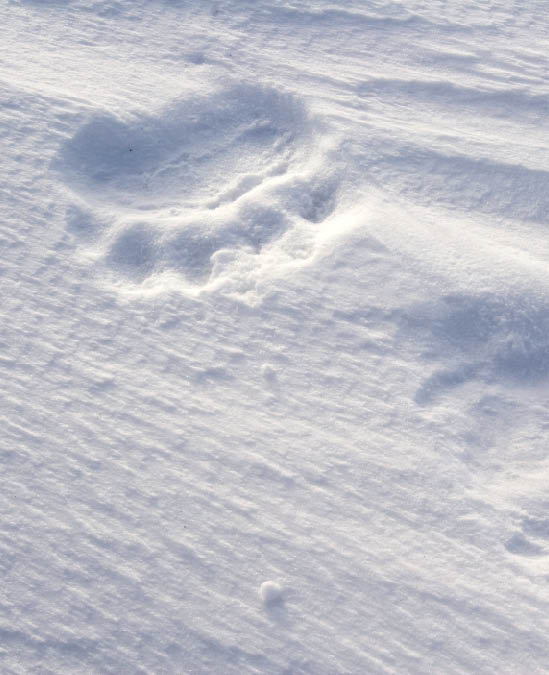Thoreau's Legacy (12 page)
Authors: Richard Hayes
The Big Uneasy
Randall Curren
A NATIVE OF NEW ORLEANS, I LIVED THERE UNTIL I
was twenty-two, and I continued to visit until not long before Hurricane Katrina struck. In the first days after Katrina, I worried about displaced family members and friends unaccounted for. I remembered my mother carrying me home when a summer rain made the streets impassable, the water too deep for me to walk through. My neighborhood, Gentilly, was where the deepest flooding from Katrina occurred, but as a child I had no idea we lived in the lowest and most vulnerable part of town. When I was ten, I scavenged firewood for cooking in the days after Hurricane Betsy, which left us without power for many days.
When boats began rescuing Katrina victims in earnest after days of incomprehensible delays, I remembered riding out Hurricane Camille in a dormitory at the University of New Orleans,
a few yards from Lake Pontchartrain and the London Avenue Canal, breached by Katrina. Camille had headed straight toward New Orleans and deflected to the east as it made landfall, sending a thirty-foot surge of water across Biloxi, Mississippi, much as Katrina did.
After Katrina, I began to feel that I would never be able to go home again. “Come and stay with us and I’ll drive you around,” my brother said a year after the storm. “But it’s mile after mile of devastation, and I can’t look at it myself without tears streaming down my face.”
Once dubbed the “City That Care Forgot,” the Big Easy is not so easy or carefree anymore. Before Katrina, no one on the Gulf Coast imagined they would ever see a hurricane as bad as Camille again. Water in the streets and narrow escapes during hurricanes were normal, and no predictions of Katrina’s possible devastation could persuade New Orleanians that they would not be able to return home in a few days.
My brother’s family
evacuated with little more
than a checkbook and a change of clothes;
it was eight months before they could reoccupy their home.
The human truth that Katrina made vivid for me is that our experience of what is normal leads us to discount objective evidence that something out of the ordinary is happening. The truth of climate disruption is that a major American city could be lost to the sea much sooner than people realize. In the thirty years between Camille and Katrina, the delta between New Orleans and the Gulf of Mexico lost 1,500 square miles of land mass, and the surface waters of the gulf warmed to a peak summer temperature of 90 degrees F. As oceans rise and warm, I fear that New Orleans will not be the only city more vulnerable to the bigger storms we can expect.

Randall Curren
is a professor of philosophy and department chair at the University of Rochester, where he holds a secondary professorship in education. Growing up in New Orleans, he divided his time between the library and the marshy woods near his home.
Canceling Catalogs:
A Gift Whose Time Has Come
Jennifer B. Freeman
JUST BEFORE THANKSGIVING, MY FAMILY GAVE A
holiday present to our New York apartment building. It started with a box in the lobby and a sign offering to cancel any catalogs that were put inside. Our plan was to encourage our neighbors to think a little and help save some trees.
To make a difference in the fight against global warming, you have to work on many levels: change your light bulbs, write to your senator, talk to your neighbor, and walk in the woods to remember what it’s all for.
The next day the box began to fill up. Four inches of catalogs, then eight inches. Buried in the stacks we found Post-its bearing notes of gratitude.
At first the calling part was all me. My kids decorated the box, wrote the sign with colored markers, and carried the catalogs upstairs. But making phone calls seemed at first to be a grownup job. By the second week the volume was overwhelming. Catalogs come in an astonishing variety: children’s clothing, smoked hams, toys, diamond jewelry, hiking gear.
On a day off from school, one of my sons dared to make a catalog-canceling call, to feel the prankish thrill of phoning a grownup and pretending to be someone else. Leo learned a lot that day: that it’s better to talk to a live person, that you can ask for a live person even if the robo-prompt tries to steer you to an automated system, that you don’t have to give your phone number just because a grownup asks you to.
That afternoon my older son joined in. The apartment sounded like a call center. “I’d like to be taken off the mailing list please?” “You mean the number in the yellow box?” “The first name is Caroline, C-a-r-o-l-i …”
That day the members of our household canceled eighty-five catalogs on behalf of the neighbors. The project cost time and effort; each of us sacrificed. In short, it brought the true spirit of giving into our home. A slippery heap of canceled catalogs on the floor was tribute to our labors.
Every year, 19 billion catalogs are mailed in America. Catalogs use 3.6 million tons of paper, for which 53 million trees are cut down. Producing catalogs causes the release of 5.2 million tons of carbon dioxide into the atmosphere (equal to about 2 million cars on the road) and uses 53 billion gallons of water. People should be able to receive the catalogs they want, but they should cancel the ones they don’t want. According to industry statistics, about 98 percent of catalogs go straight into the recycling bin or the landfill.
Doing
favors for the planet
is good for your soul.
Perhaps that’s why our family continued to get notes like this one, from a friend for whom we canceled fifty-nine catalogs in a week. She said “I feel clean, purged, and righteous.”

Jennifer B. Freeman
is a freelance science writer living in New York City. In her free time she enjoys taking nature vacations with her kids.
I Love Muscle Cars,
but I Hate My Own Hypocrisy More
Robert N. Shorin
YES! I LOVE THE SO-CALLED MUSCLE CARS, A CARRY-OVER from my youth in the 1950s, when hot rods and loud mufflers made me and my friends feel strong and cool and oh-so-grown-up. Of course I’m a grownup now, but I still like the sound of a hot V-8 engine revving up and gears smoothly hand-shifting from first into second, the aroma of exhaust, even the screech of rubber on the road as some fool peels off in a fast start to get to the next red light before anyone else. That may seem contradictory, I know, but that’s who I am.
I’m one of the lucky ones who can afford to make some financial sacrifices and splurge on a brand-new Porsche Carrera. I test-drove one a few months ago with the serious intention of buying it. The acceleration was thrilling, as was the car’s stability and the soft roar of the engine as I put this amazing vehicle through its paces on straightaways and around corners. Why stop there? I test-drove a hot new BMW, one of the Mercedes sports cars, and the fantastic Audi A5, which made my heart leap in ecstasy.
Vroom! Vroom!
Just as I was about to buy or lease one of these fantastic pieces of vehicular engineering, my hypocrisy hit me in the eye. You see, I’m also an advocate of clean sources of energy, and I talk a lot about the environment to my friends. I take the high road and feel so good about myself and my moral position. I had just finished reading Lester Brown’s
Plan B 3.0,
a well-researched scholarly book that documents the devastating effects of global warming on our planet, describing in scientific detail how climate change affects everyone, rich and poor alike, and what we can do about it. I’ve told my friends and relatives about the book and even bought copies of it for them to read.
So
how the devil could I drive
a high-powered gas-burning vehicle spewing exhaust fumes
that will contribute to the earth’s demise and ruin this planet before my grandson has a chance to enjoy it, just because I like the sound and feel of a hot car? No way! So I upped and got me to a Toyota dealer and leased the newest Prius hybrid. It drives very nicely, thank you. It gets me where I want to go, in style and comfort. It comes with every conceivable option. It is plenty fast, and its acceleration is more than adequate for any U.S. highway—I’m not racing at Le Mans. One of the benefits of the Prius is that I get around 45 mpg in the city and more than 50 mpg on the highway. Better yet, I backed my words with action, stopped being a hypocrite, made a small sacrifice, and did something to save our planet. I’m proud of me.

Robert N. Shorin
is a psychoanalyst and vice president of the Karen Horney Clinic in New York City. He lives on Long Island with his wife, Alene, who has been his best friend and supporter for forty-eight years.

